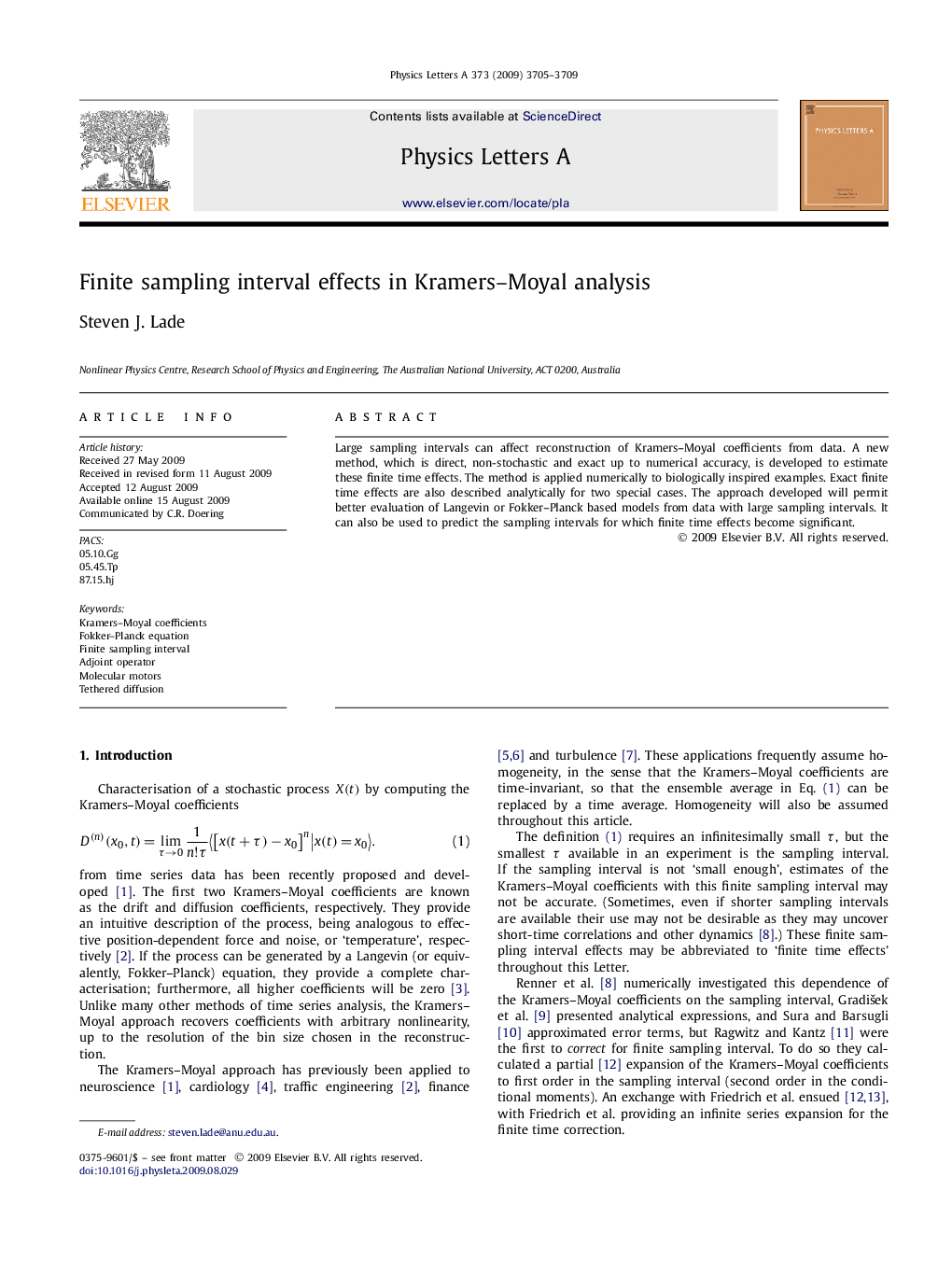| Article ID | Journal | Published Year | Pages | File Type |
|---|---|---|---|---|
| 1863849 | Physics Letters A | 2009 | 5 Pages |
Abstract
Large sampling intervals can affect reconstruction of Kramers–Moyal coefficients from data. A new method, which is direct, non-stochastic and exact up to numerical accuracy, is developed to estimate these finite time effects. The method is applied numerically to biologically inspired examples. Exact finite time effects are also described analytically for two special cases. The approach developed will permit better evaluation of Langevin or Fokker–Planck based models from data with large sampling intervals. It can also be used to predict the sampling intervals for which finite time effects become significant.
Related Topics
Physical Sciences and Engineering
Physics and Astronomy
Physics and Astronomy (General)
Authors
Steven J. Lade,
